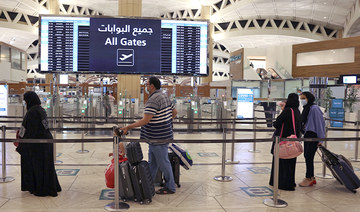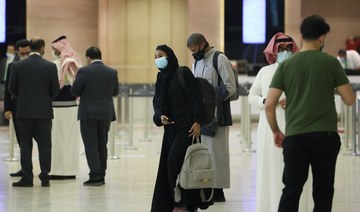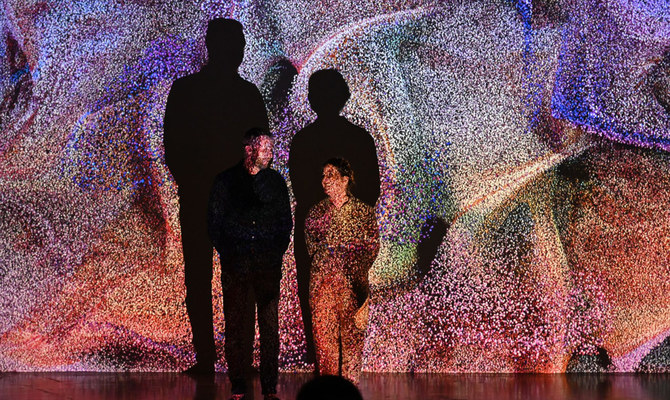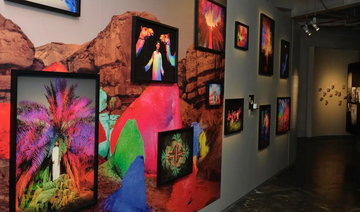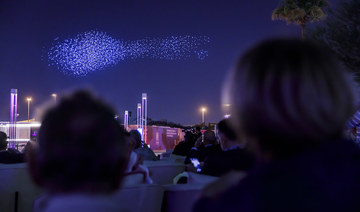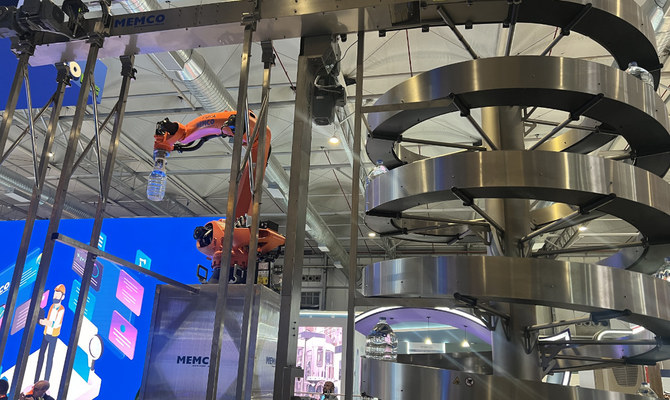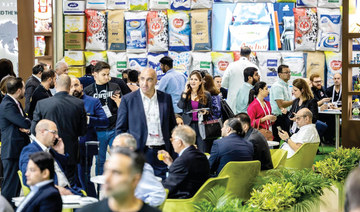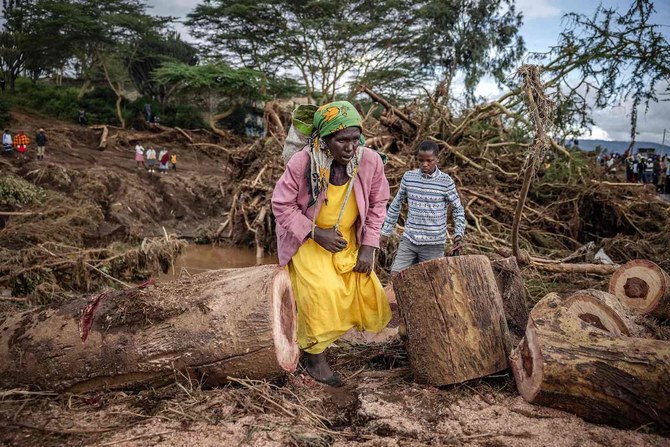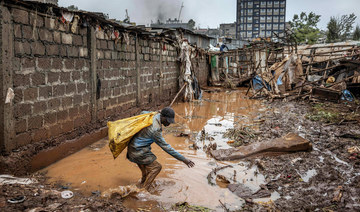DUBAI: Before the coronavirus swept the planet in early 2020, Saudi Arabia was on course to eliminate viral hepatitis by 2030. But as in the rest of the world, the task of fighting COVID-19 in the Kingdom was understandably given precedence over efforts to defeat what is often called the “silent killer.”
Hepatitis fits the description because 95 percent of infected individuals worldwide are unaware of their infection and in most cases people are asymptomatic. It nevertheless remains the world’s seventh-leading cause of death.
The illness is an inflammation of the liver that can cause a range of health problems and can be fatal, according to the World Health Organization (WHO). There are five main strains of the virus, referred to as types A, B, C, D and E.
While all cause liver disease, the five strains differ in important ways, including modes of transmission, severity of the illness, geographical distribution and prevention methods.
In particular, types B and C lead to chronic disease and, together, are the most common cause of liver cirrhosis (scarring of the liver) and liver cancer. An estimated 325 million people worldwide live with hep-B or C and, for most, testing and treatment remains beyond reach.
In 2015, viral hepatitis caused 1.34 million deaths worldwide, mostly from hep-B infection, which is higher than the number of global deaths caused by the human immunodeficiency virus (HIV).
Some types of hepatitis are preventable through vaccination. According to the WHO, “an estimated 4.5 million premature deaths could be prevented in low- and middle-income countries by 2030 through vaccination, diagnostic tests, medicines and education campaigns.”
July 28 is World Hepatitis Day. The date was chosen to coincide with the birthday of Nobel prize-winning scientist Dr. Baruch Blumberg, who discovered hep-B virus and developed a diagnostic test and vaccine.
FASTFACT
July28
World Hepatitis Day is observed each year on this date to raise awareness about the virus that causes liver disease and hepatocellular cancer.
With COVID-19 vaccination efforts continuing apace and the pandemic beginning to subside in many parts of the developed world, the fight against viral hepatitis is once again high on Saudi Arabia’s public health agenda.
“The Saudi Ministry of Health instituted a specific program to fight hepatitis C in the country before the pandemic, in accordance with the WHO,” Dr. Faisal Aba Alkhail, a consultant transplant hepatologist at the King Faisal Specialist Hospital in Riyadh, told Arab News.
“But then COVID-19 came and disrupted many initiatives. The battle against COVID-19 had to be the priority.”
In 2016, the WHO Global Health Sector Strategy issued a road map for the elimination of viral hepatitis as a public health problem by 2030.
The plan entailed a 90 percent reduction in infections and a 65 percent reduction in mortality by the end of the decade, compared to a 2015 baseline that showed 257 million people living with hepatitis B, 71 million with hepatitis C, and 36.7 million with HIV.
“As Saudi Arabia gains control over COVID-19, it’s time to revisit the initiatives and campaigns to eliminate viral hepatitis B and C with full force to meet the WHO target of elimination by 2030 in our country,” Aba Alkhail said.
Hepatitis B is spread through contact with the blood, semen and other body fluids of an infected individual, but can be prevented through vaccination.
Hepatitis C is also blood-borne, but varies in its severity, in some cases lasting only a few months while at other times developing into a lifelong illness. It is a major cause of liver cancer, with sufferers often requiring liver transplantation. There is currently no vaccine.
In the 1980s, Saudi Arabia had one of the highest rates of hep-B infection in the world, with an estimated 8.3 percent of the population infected.
Then, in 1989, the Kingdom became the first country in the Middle East to launch a hep-B vaccination program, eight years after the first vaccine was approved for use in the US. By 1990, the vaccine was available to all infants from birth and children were routinely vaccinated when they started school.
While the vaccination of children and infants has been associated with a notable decline in the rate of infection in Saudi Arabia, falling to just 1.3 percent according to the Saudi Journal of Gastroenterology, hepatitis remains a major public health risk in the Kingdom, especially among high-risk groups, including those with HIV, drug addictions and those who have undergone blood transfusions.
In 2007, the Saudi Ministry of Health ranked hepatitis the second most common reportable viral disease in the country, with almost 9,000 new cases diagnosed that year alone. Of these, 52 percent had hepatitis B, 32 percent hepatitis C, and 16 percent hepatitis A.
In Saudi Arabia, hepatitis B and C remain a major cause of hepatocellular carcinoma, the most common type of primary liver cancer, and diseases that require liver transplantation. The infection rate may have dropped, but morbidity and mortality related to the disease have not shown a parallel decline.
It’s time to revisit the initiatives and campaigns to eliminate viral hepatitis B and C with full force.
Dr. Faisal Aba Alkhail - Consultant transplant hepatologist at King Faisal Specialist Hospital in Riyadh
Medical experts expect the burden of associated liver diseases to rise in the coming years, owing to aging in infected populations.

Dr. Faisal Aba Alkhail
Saudi Arabia has implemented a number of programs designed to improve diagnosis, including premarital screening for hepatitis B and C and HIV. “In Saudi Arabia you can’t complete marriage documents without doing the test for hep-B and hep-C,” Aba Alkhail said.
“In addition, the Kingdom follows the standard special population screening of dialysis patients, blood bank donors, hospital-based patients and other high-risk groups.”
Crucially, it has also made hepatitis screening and treatments free to all citizens and residents, both Saudi and non-Saudi.
“In Saudi Arabia, we are (trying our best to follow) the WHO targets: To diagnose 90 percent of infections and treat 80 percent of high viral-load patients by 2030, as well as diagnose and treat all infected patients by 2022,” said Aba Alkhail.
“Most known cases have been rated and cured since effective treatments were made available in 2014. Many countries are running out of new hepatitis C patients to treat, according to the World Hepatitis Alliance.
“Saudi Arabia still has the burden of hepatitis C patients that are not yet diagnosed and there is a need for a screening program to detect previously undiagnosed cases.”
Medical professionals set out a list of recommendations in a May 2021 report, titled “Revealing Hepatitis B Virus as a Silent Killer: A Call-to-Action for Saudi Arabia,” published in the Cureus Journal of Medical Science.
“In 2016, hep-B caused 1,700 annual deaths (i.e. five deaths per day) in KSA,” the report said. “Although substantial improvements have been made in hep-B management, a lot remains to be done for hep-B screening and care pathways.
“Considering the current hep-B estimates in KSA, the country is expected to achieve the WHO hep-B 2030 target goals for diagnosis, treatment and mortality by 2051.
“The current scenario in KSA demands the implementation of a structured policy framework to combat and eliminate hep-B.”
The report’s authors said the Kingdom could curb the virus by “establishing a national-level registry, implementing screening campaigns, improving linkage of care between primary care physicians (PCPs) and specialists, and increasing PCP education and awareness.”
However, the report said that in order for these measures to have the desired effect on transmission rates, they must be adhered to consistently and simultaneously throughout the Kingdom.
“We have already come so far since the 1990s. Saudi Arabia had a problem in the past with hepatitis, but the vaccine has greatly improved its prevalence in the Kingdom,” said Aba Alkhail.
“The challenge now is finding the undiagnosed cases and treating them effectively so that we can win this battle.”
Twitter: @rebeccaaproctor





